Celebrate Spring with Cool-Season Containers
Fill your pots with colorful plants that don’t mind chilly weather

Spring doesn’t suddenly burst into bloom just because the calendar says it’s March. In the North, winter can linger for weeks or even months, while in the warmer regions of the country the jump from winter into spring can be as quick as a few weeks in late January or February. No matter where you garden, planting up containers that herald the new season is fun and easy if you know what plants to use.
When selecting plant material for my early-spring containers, I am more discriminating than I am at other times of the year. Likely candidates include the obvious pansies and spring-flowering bulbs, but annuals, perennials, and even small shrubs and trees can be used effectively as well.
Bulbs
In the autumn when I’m planting spring-flowering bulbs in my garden beds, I often plant some in pots, too, with my spring containers in mind. I sink the newly potted bulbs into an open unplanted area in the garden or place them in a cold frame for the winter. Come spring, I pop them out and use them in my container combinations. Sometimes I pack a large low dish with bulbs for an overflowing splash of color.
Not all spring-flowering bulbs lend themselves to pot culture, though. When it comes to tulips, the single and double, early and midseason Triumph group of tulips works the best. Tall Darwin hybrids and late-flowering types are better off planted in the garden. I’ve had good luck with most types of daffodils, crocuses, hyacinths, grape hyacinths, and dwarf irises. With the exception of the tulips, most of these pot-grown bulbs can be replanted in the garden where they will continue to bloom in subsequent years. I recommend keeping the bulbs in their pots until the foliage dies back naturally, then planting the bulbs at their proper depth in the ground, adding bulb fertilizer or bone meal to each hole.
Recycled containers add flair


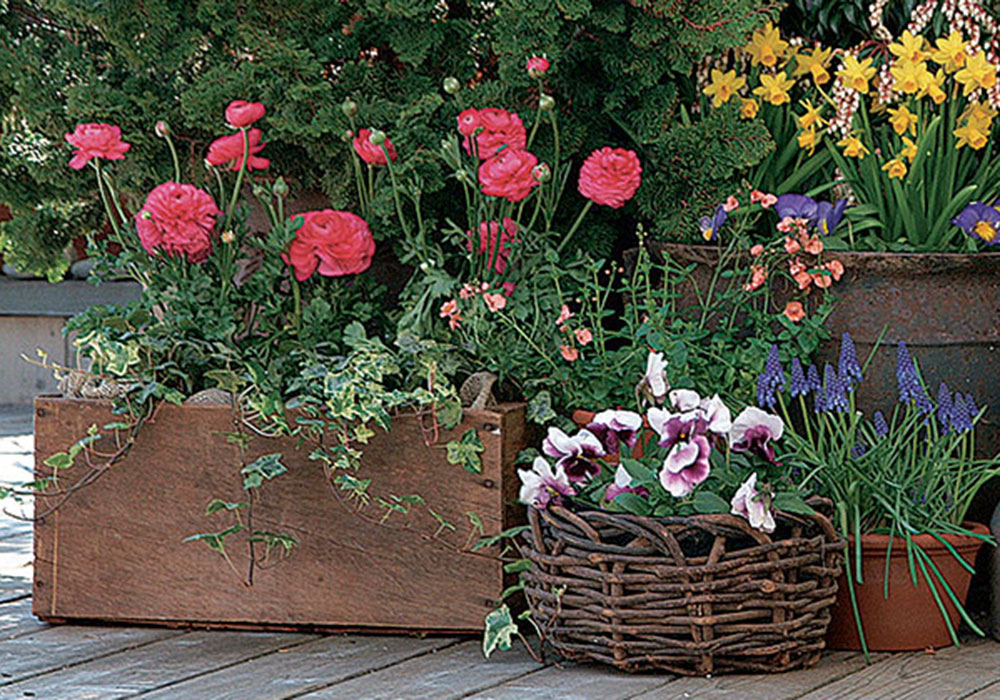
Annuals and tender perennials
Annuals and tender perennials that can handle some frost, such as osteospermums, Marguerite daisies, nemesias, twinspurs, and African daisies, perform very well in containers in cool weather. These colorful and long-blooming plants come in a variety of shapes, sizes, and colors and combine easily with other plants to enhance container combinations. With proper feeding and deadheading, the tougher plants, like the marguerite and African daisies, will continue blooming into fall. When the hot weather strikes, the osteospermums will stop blooming and put on vegetative growth, then set new buds for autumn blooms.

Perennials
When they are potted up, I like to give early-spring-blooming perennials—like violets, primroses, hellebores, barrenworts, bergenias, Siberian bugloss, corydalis, bleeding hearts, creeping phlox, adonis, English daisies, and Virginia bluebells—a prominent location so they can show off their stuff. When these plants have finished blooming, they can be replanted in the garden to be enjoyed for years to come. Sometimes I group a few pots of perennials together in a larger container and camouflage the pots with some woodchip mulch. This setup demands more attention when watering but creates an instant display.
Shrubs and trees
Very often when I’m walking through a nursery in early spring I spot a shrub or small tree that is too beautiful to pass up. I buy it on impulse and bring it home without a thought to where I am going to plant it. While waiting for that perfect location to open up, I incorporate it into an early-spring container grouping. This way, I postpone any hasty planting scheme, and I can enjoy my new purchase every time I go in or out of the house. Plants like Japanese andromedas, witch hazels, forsythias, winter hazels, deutzias, camellias, winter jasmines, magnolias, and many early-blooming rhododendrons and azaleas are candidates for spring containers. The newly emerging foliage of Japanese maples and other young deciduous trees and shrubs can be an incredible sight, worthy of being viewed up close.
After a long cold winter, there’s nothing like the soft pastel shades and new growth of early-spring bulbs, pansies, perennials, shrubs, and even trees mixed with the earthy aroma of damp soil and new growth to refresh and invigorate the soul. All of the colors, scents, and textures arranged artfully and with a bit of whimsy will make it an easy transition into spring.
Plants that can take a chill
The following plants tolerate the cool temperatures of late winter in the author’s USDA Hardiness Zone 7 garden on Long Island. Click on the links below to learn more about each genus or species.
Bulbs
|
Annuals
|
Perennials
|
Shrubs and trees
|
Get plants used to cold weather slowly
- Plant spring containers when nighttime temperatures are consistently above freezing or just dipping down to about 30°F.
- Cold temperatures and excessive sun can damage plants that haven’t been hardened off properly.
- To harden off plants, keep them outside in a protected, partially shaded area for a few days, exposing them gradually to more sun and cooler temperatures.
- Protect plants when a light frost threatens by covering them with an old sheet or blanket.
- Move pots to a sheltered location if a severe frost is expected.
Dennis Schrader is co-owner of Landcraft Environments in Mattituck, New York.
Photos: Jennifer Brown
Fine Gardening Recommended Products
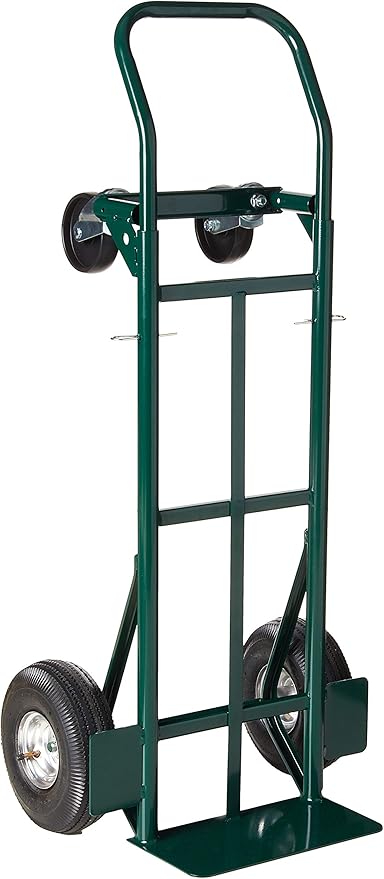
Harper Super Steel 700-lb. Platform Hand Truck
Fine Gardening receives a commission for items purchased through links on this site, including Amazon Associates and other affiliate advertising programs.
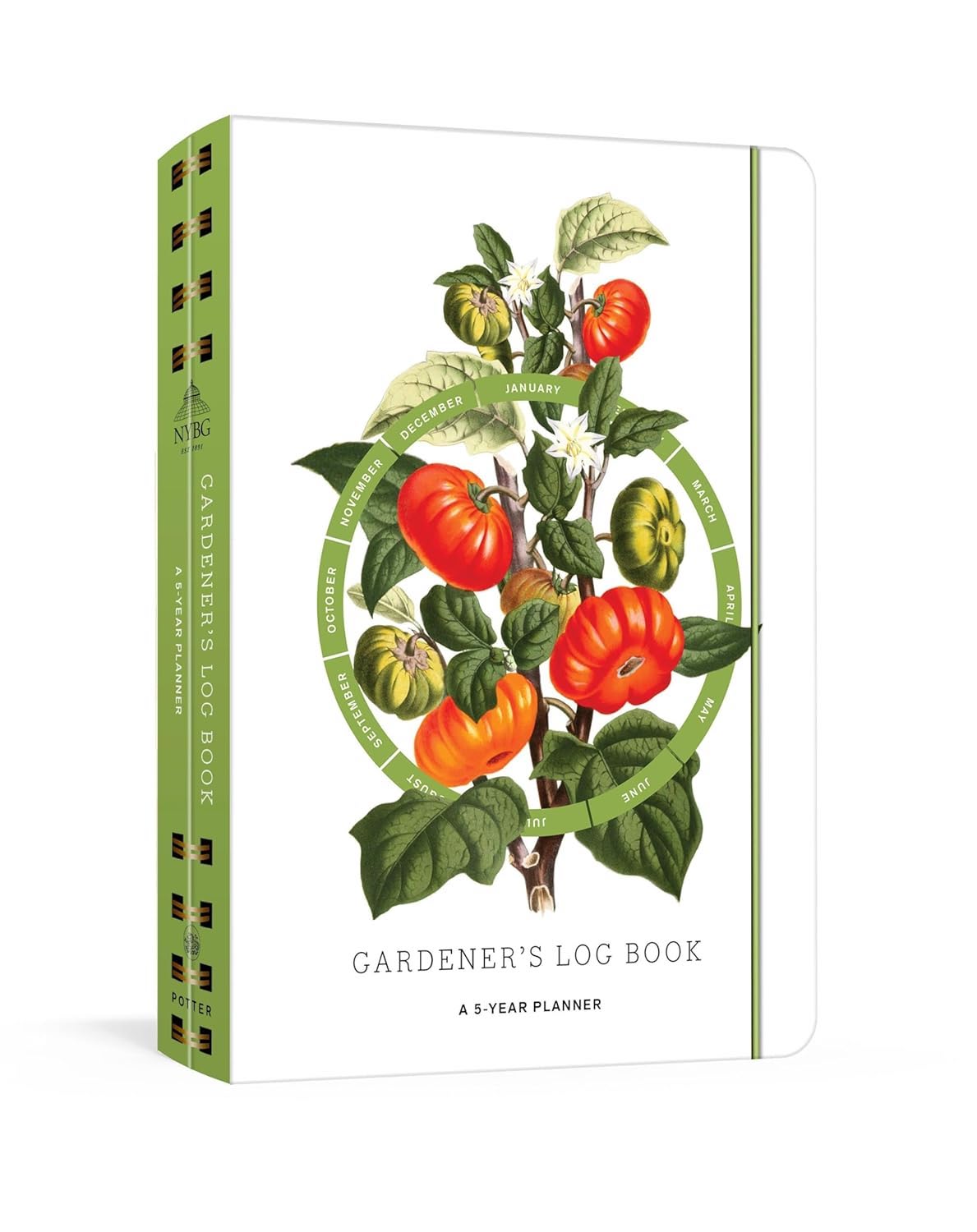
Gardener's Log Book from NYBG
Fine Gardening receives a commission for items purchased through links on this site, including Amazon Associates and other affiliate advertising programs.
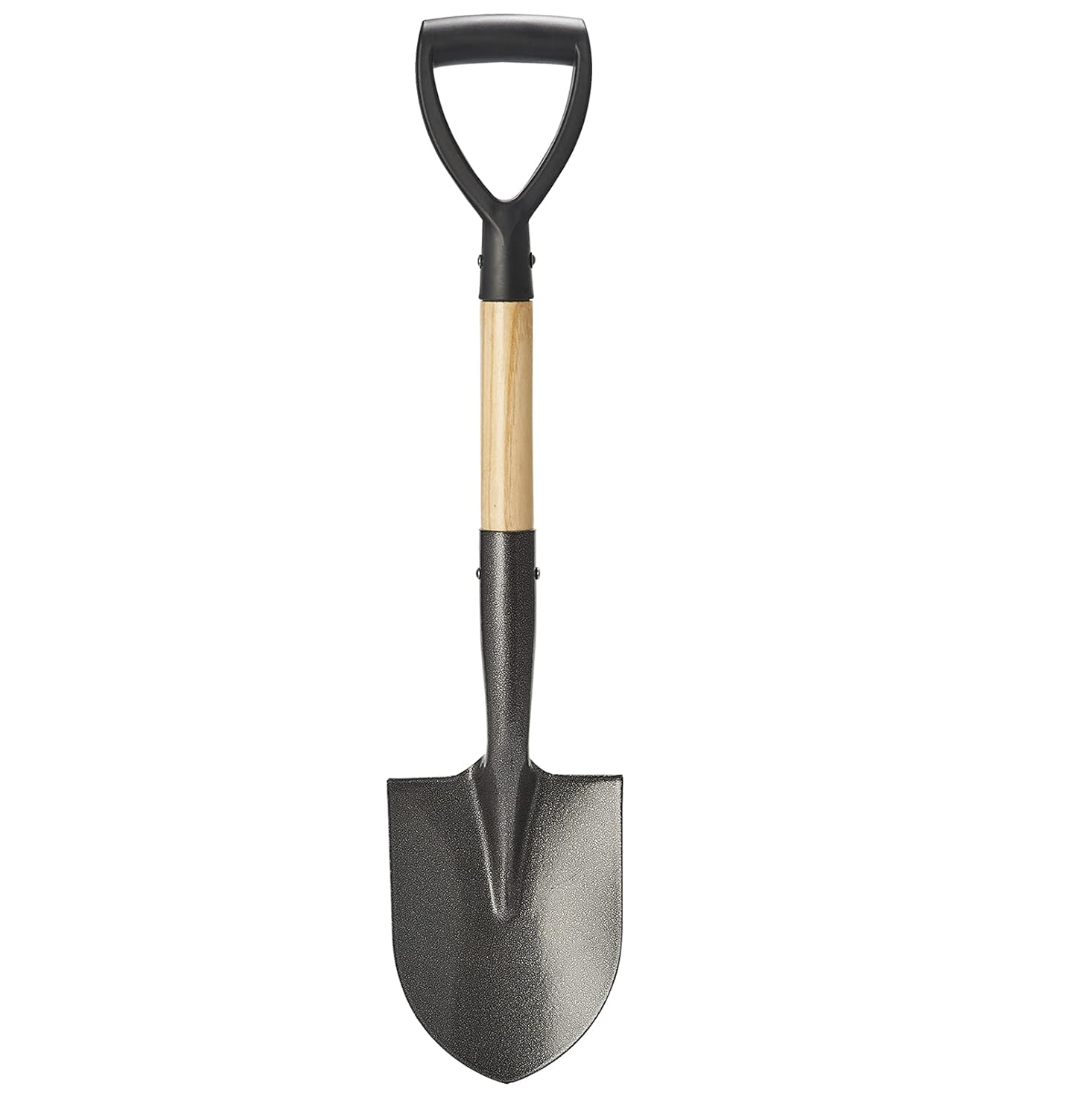
Corona® Multi-Purpose Metal Mini Garden Shovel
Fine Gardening receives a commission for items purchased through links on this site, including Amazon Associates and other affiliate advertising programs.

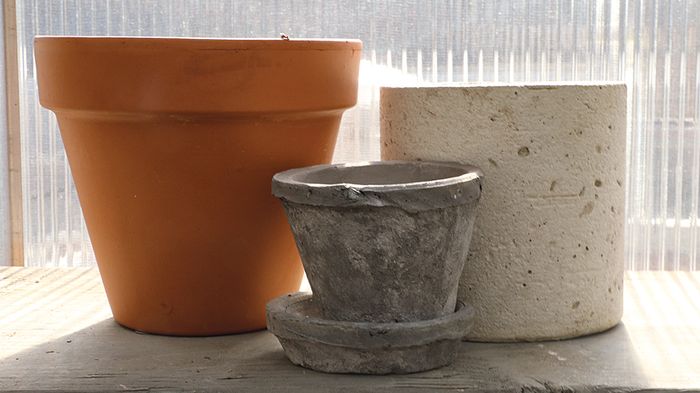



Comments
Thanks for this colorful plants
I like your ideas
Such a lovely plant
Log in or create an account to post a comment.
Sign up Log in